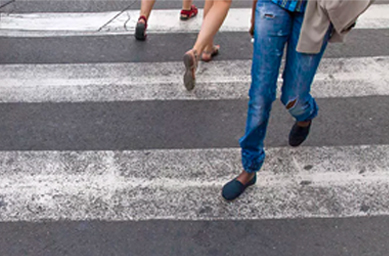Young children are highly susceptible to outside influences and distractions. Child psychologists tend to agree that children don’t even leave the preoperational stage of cognitive development until around 7 or a bit older, meaning they aren’t even able to truly use logic yet. Perhaps it should be no surprise then that children can be prone to wandering onto strangers’ properties because they see something shiny, cute, or fun-looking.
With the holiday season here, plenty of homes will start lighting up with exciting holiday decorations. It is those same decorations that might attract the attention of a small child, luring them onto the property and potentially into danger. If a child gets hurt because they wanted to get a closer look at holiday lights and décor, can the homeowner be held liable for any resulting damages, like medical bills and emotional scarring?
Florida Attractive Nuisance Laws
In the definition of an attractive nuisance in Florida law, the following items are described:
- Swimming pools and hot tubs
- Trampolines
- Fountains
- Iceboxes, refrigerators, and deep-freeze lockers
- Clothes washers and dryers
- Other airtight units that have been abandoned or discarded
If any of these items attract the attention of a child, and that child can access it without unreasonable effort, then the property owner can be held liable if that child is hurt. The child’s injuries can originate from the attractive nuisance itself or any other hazard on the property they encounter while trying to reach the attractive nuisance.
The attractive nuisance doctrine of Florida quite clearly applies these protections to child trespassers, as well as welcome guests and visitors. If a child has no permission to be on someone’s property but gets hurt due to an attractive nuisance, then the property owner is still liable for the damages. Making a reasonable effort to prevent children from accessing attractive nuisances can limit or eliminate the property owner’s liability, though. For example, if a child has to climb a high fence with a warning sign on it to get to a trampoline, then the property owner might not be liable for any resulting trampoline accidents, as they made it clear that trespassing was disallowed and made it difficult for anyone to do so.
How Do Holiday Decorations Factor into Attractive Nuisance Laws?
Interestingly, holiday decorations or anything like them are not described within Florida’s attractive nuisance doctrine. This might be part of an unspoken acceptance that holiday decorations are supposed to be bright, festive, and attractive to passersby. Or, it could just be a legal oversight that might need some correction.
Does that mean that you cannot sue a homeowner for your child’s injuries if they were hurt while trying to get a closer look at holiday decorations? Not necessarily.
Premises Liability Laws Guarantee the Safety of Visitors
If your child is hurt on someone else’s property because they were trying to see or play with their holiday decorations, like a big inflatable Santa Claus, then basic premises liability laws might apply to the case. Anyone who is welcome on a homeowner’s property – even those who have not been given a direct invitation but who have also not been told directly to leave – has the right to assume they will be safe from unreasonable hazards.
Holiday decorations can become dangerous by posing a:
- Choking hazard
- Strangulation hazard
- Electrocution hazard
- Falling or hit by falling object hazard
Since most holiday decorations are placed on front lawns, any accident involving them would probably not involve trespassing. That is to say, a child hurt due to a holiday decoration would likely not be trespassing, so premises liability laws could apply. Or, there is always the possibility that a judge overseeing the personal injury case would use their discretion to include holiday decorations as an attractive nuisance, one that understandably catches the attention of young children and entices them to come closer, possibly into danger. A judge’s discretion is a powerful component of any personal injury claim, and it might be one that ends up working your favor as a plaintiff.
Was your child hurt by someone else’s holiday decorations that were unreasonably hazardous by design, or that tempted your child to enter a dangerous setting? Call Attorney Todd Miner at 407-214-4743 to see if you have the grounds to file an injury claim against that homeowner. Our law firm is based in Orlando but helps clients all throughout Central Florida.








